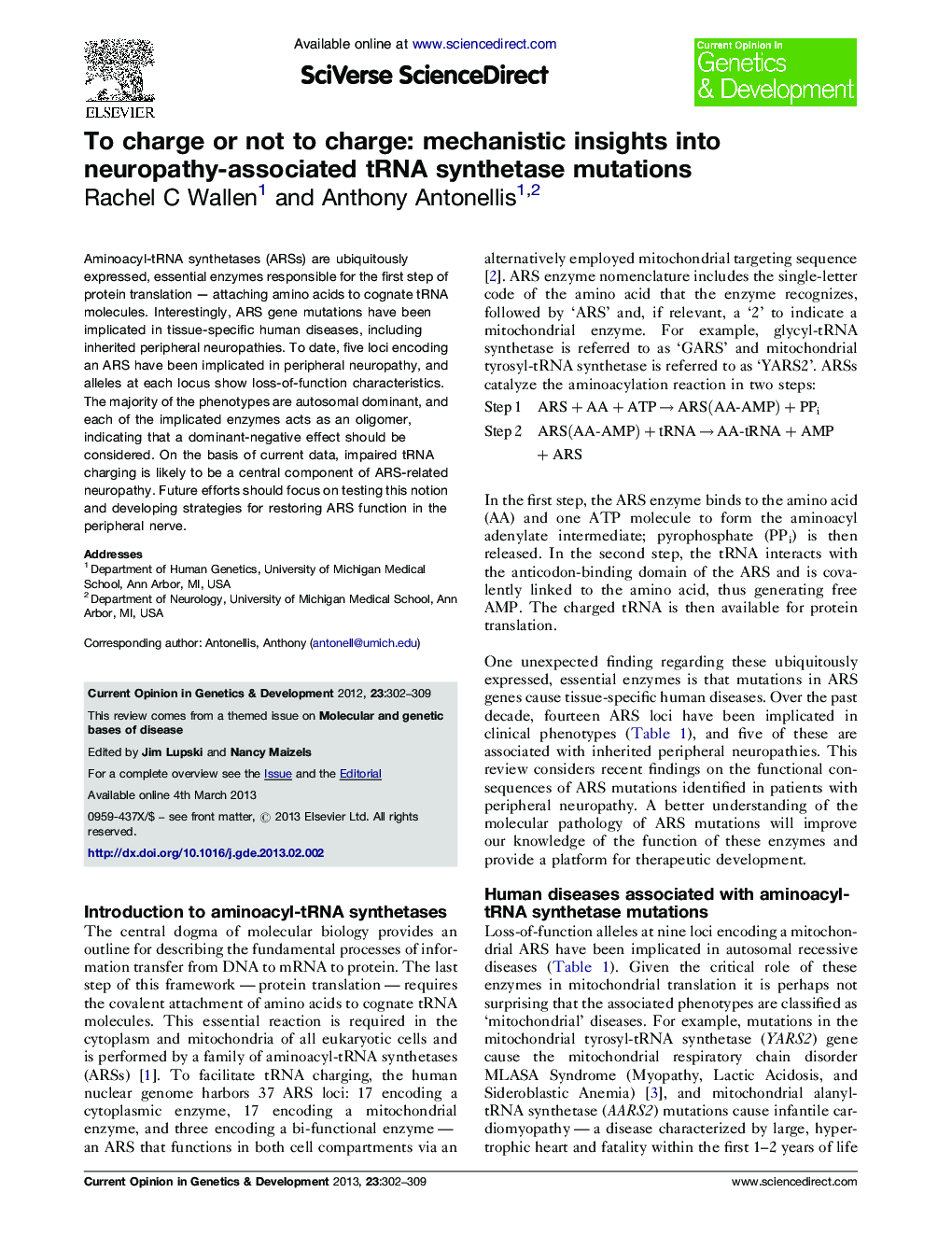| Article ID | Journal | Published Year | Pages | File Type |
|---|---|---|---|---|
| 5893710 | Current Opinion in Genetics & Development | 2013 | 8 Pages |
Abstract
Aminoacyl-tRNA synthetases (ARSs) are ubiquitously expressed, essential enzymes responsible for the first step of protein translation - attaching amino acids to cognate tRNA molecules. Interestingly, ARS gene mutations have been implicated in tissue-specific human diseases, including inherited peripheral neuropathies. To date, five loci encoding an ARS have been implicated in peripheral neuropathy, and alleles at each locus show loss-of-function characteristics. The majority of the phenotypes are autosomal dominant, and each of the implicated enzymes acts as an oligomer, indicating that a dominant-negative effect should be considered. On the basis of current data, impaired tRNA charging is likely to be a central component of ARS-related neuropathy. Future efforts should focus on testing this notion and developing strategies for restoring ARS function in the peripheral nerve.
Related Topics
Life Sciences
Biochemistry, Genetics and Molecular Biology
Developmental Biology
Authors
Rachel C Wallen, Anthony Antonellis,
